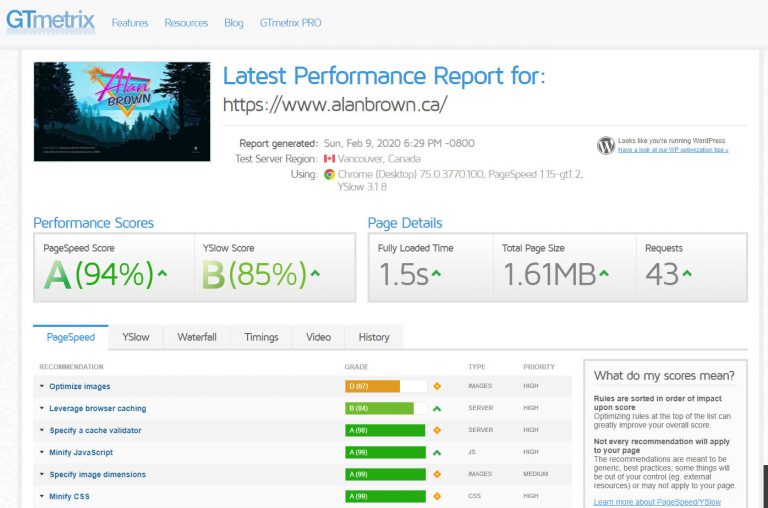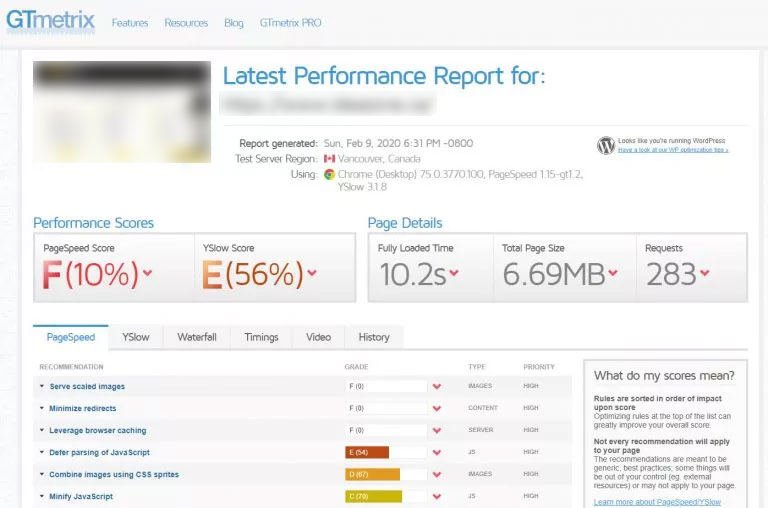How to Find a Skilled WordPress Developer
WordPress development is a hot industry at the moment, meaning that good WordPress devs are in demand. This popularity has drawn a lot of new people to the industry, making it more difficult to identify the real talent.
Ensuring you are working with the right caliber of WordPress professional for your project is going to determine whether you’re paying to build it twice, or not. There are countless instances where I have been brought in to clean up the work of a previous developer, only to find the entire site was cobbled together using a page builder plugin, without following any of WordPress’ conventions. Without proper relationships set up between the content, and no meaningful way to export the design of the site from the page builder plugin, more often than not the only option is a total rebuild.
In this article, I’ll give you some tips on avoiding a total rebuild scenario by ensuring that the developer you are considering for your project is up to the task. I’ll walk you through some of the potential red flags to watch for by providing some worthwhile questions to ask while interviewing candidates.
Watch out for Page Builders
Your first question right out of the gate should ask if your developer plans to use a page builder plugin for the site.
Are you planning on using a page builder plugin?
Cat’s out of the bag now
Page builders enable the ability for someone to build an entire website by dragging and dropping pieces together in a visual editor. Think Squarespace or FrontPage, but for WordPress. Sounds great, right? Frankly, the premise sounds pretty good, but let’s walk this down a little to look at how it plays out.
Poor Performance
The largest issue with Page builders is that generally they result in very poorly optimized websites. Poor optimization means slow performance, which in turn means a poor user experience. In short: your users leave and go to the competition. Page builders tend to load a whole lot of assets, and without proper configuration often result in very heavy page load sizes. Easy for the person building the pages, bad for all the users viewing the pages.


Vendor Lock-In
One of WordPress’ strongest features is the ability to easily update your website by changing themes or migrating content. The platform is built on the assumption that you will eventually want to update the design of the site without having to re-submit all of the content. Website migrations can be a tremendous task, so WordPress allows you to update your site’s theme, and leave all of the content in place. Often page builders remove this ability.
With many page builder plugins, there is no way for you to change WordPress themes and keep all of your content in place. Because they implement their own way of structuring data, you are stuck using their proprietary solution for the long haul. Even if you are lucky enough to be able to switch themes, you’ll still be locked to the page builder plugin itself. You won’t even be able to remove it without destroying the work you’ve done. They’re built this way for a reason, to lock you in. But why? Oh, you didn’t think they were free, did you?

Additional Costs
These page builder tools come at a premium yearly subscription cost which is frequently passed down to the client. The more plugins you need to do the job, the more it is going to cost you in subscription fees.
And that’s not to mention the hidden cost of doing business with someone who does not understand the underlying technology of the product. Consider this: when you inevitably have a request for a unique feature, who would you rather work with: The person who is constrained by a tool used to customize a platform, or the programmer who understands the language that the entire platform was written in?
Disregard for Data Architecture Conventions
A well made Content Management system doesn’t just give the users the ability to easily manage content without any need for technical prowess, but it also structures and stores that content in a manner that it can easily be dated, tagged, and attributed so it can be called up later in other parts of the website.
For example, you may want a profile for each of your staff on a staff directory page, but you may also want that profile info to show up in an author section on blog posts they’ve written.
WordPress offers many great ways to structure your content in this manner, but Page Builders often promote a static method of building content, inextricably tying the data layer to the visualization layer, which removes the ability to reuse content without resubmitting it all.

They are a Crutch tool

The single most important reason to be wary of the use of a page builder tool is their rampant use by people who don’t actually know how to work with WordPress (or website development in general) outside of the page builder tool they know. In other words, they use it as a crutch.
I see it every day in support forums: people who have sold a website to their client and now come looking for support because they cannot execute on the most basic customization outside of those offered by the page builder. It pains me to see people paying “professionals” for that level of service.
I will admit that there is a subset of very competent developers out there who do wrangle page builders’ tools appropriately, addressing many of the issues I mentioned above. But those are the vast minority of people who use these plugins.
The cold hard truth is that most people selling websites built with page builders are the very crowd I spoke about in my opening, hoping to make a quick buck on the popularity of WordPress, without actually knowing the basics of WordPress or of website development itself. This alone is a compelling reason to be cautious of any developer using a page builder plugin.
When Page Builders are Appropriate
There’s always an exception to the rule. Websites should always be built to execute on the client’s goals as well as provide a sound experience for the user. If one of the client’s goals is to be able to maintain the design of the website using a drag and drop interface, then this may be an appropriate time for a page builder.
Avoid Purchasing a Theme
Another item worth asking your candidate about is whether or not they plan to build the theme for your website or purchase it.
Are you planning to build a theme, or purchase it?
Yes, that is sweat
These days there are thousands of pre-built themes you can purchase and set up for your WordPress site. They range from huge monolithic solutions that attempt to solve every potential problem to simple niche market websites. Some of them are great, and they certainly have their place on some projects, but your business probably deserves better.
They Dissolve your Brand Identity
If you’ve already invested time and money into a brand identity for your business then your image will suffer by using a pre-made theme for your website. Chances are high that your competition elsewhere has already purchased and is running that same theme; how embarrassing. If you intend to stand out from the competition, a custom-built theme is a must-have for your website.
More Performance Issues
Many of these goliath pre-built themes tend to suffer from poor performance due to what’s going on under the hood in order to support all of the features they try to offer. Sure, it may give you the ability to track your users’ cats via satellite, but the web pages are taking 15 seconds to load. The importance of good performance can not be stressed enough. If the site is slow then the users will leave, and without users, what are we even doing here?

Why you want a Custom Theme
A custom theme is a WordPress theme built around your brand to serve your specific business needs. It is completely bespoke, one of a kind, and built to stand out from the vast sea of templates. A skilled WordPress theme developer will work with you to understand your specific business goals and devise an optimized and visually unique solution. The theme will cater to your purpose and will only load the bare minimum required to your users, providing a smooth user experience.
Beware Tons of Plugins
This can be a tough one to feel out before the development process has started, but getting a look at the plugins your developer has decided to use can help give you an idea of their caliber.
Which plugins are you planning to use?
You’ll notice their eye twitch if you look closely
Unless you’re running a website rich with meta-data or complex like an e-commerce site, there probably shouldn’t be too many plugins. If you’ve got a quick 5-page brochure website, there shouldn’t be many more than a handful of purposeful plugins running. Your developer will likely use a plugin to handle some of the more complex operations like managing security, backups, performance optimization, and SEO, but a competent developer shouldn’t be using them for basic single-use features on the front end like sliders and galleries. Over-use of plugins for simple operations is a rampant issue with unskilled developers and consistently results in slow websites.
Gutenberg Support is Progressive
If you’re running a modern version of WordPress (and I hope you are) then you will have noticed the updated content editor. This is the WordPress Block Editor, also known as Gutenberg. It is the new WordPress editor, and it drastically changes the way you manage the content on your WordPress site. Instead of one basic WordPad-esque text editor for each page and post. Gutenberg gives you the ability to build out rich pages and posts using various blocks of content. The strength comes in the ability to manage those blocks.
Will the website support Gutenberg?
Anyone who is left by the time you ask them this should be given serious consideration
Gutenberg is WordPress’ response to the rise in popularity of page builder plugins. At its core, Gutenberg is a page builder. It allows you to drag and drop different blocks of content around your page and provides some advanced capabilities around controlling your page layout.
The big difference between Gutenberg and the page builder plugins referenced before is performance and bloat. Gutenberg will always be packaged with WordPress, as it is now baked into the platform. Since WordPress now offers native page builder functionality, by definition all page builder plugins have become unnecessary bloat. In a Gutenberg world, there is just no need for any additional page builders. They’re simply sitting there using up additional resources to accomplish the same thing that WordPress now offers out of the box. Bloat.
Gutenberg is easy to use, is constantly improving in every release of WordPress, and is an extremely powerful tool once you drill into it. Providing Gutenberg support as a vendor is a progressive trait, and so this gives you an easy way to determine whether or not your developer is following modern practices, or if they’re reluctant to learn and wrangle this new feature.
TL;DR
Amidst a sea of WordPress talent, it can be difficult to know if your vendor is up to snuff. By asking the following questions you can suss out how capable your developer is, and consequently how far your investment will go with them.
- Are you planning on using a page builder plugin?
The answer to this should be no unless you have a designer on your team who can manage the page layout. A superstar developer will recommend using Gutenberg over any page builder plugin. - Are you planning to purchase a theme, or build it?
You’re looking for a developer who will build a custom theme around your goals and needs instead of shoe-horning you into a pre-purchased theme. - Which plugins are you planning to use?
There shouldn’t be more than a handful unless there is some complex functionality on your website. Be wary of plugins that provide simple front-end features like sliders or galleries. - Will the website support the WordPress Block Editor?
Gutenberg is the present and future of WordPress so if you want forward compatibility this should be a hard yes.
“But how could I ever find someone who follows these practices?” you might be wondering to yourself. Well, look no further. I do practice what I preach so get in touch and we can discuss building your project right the first time.
